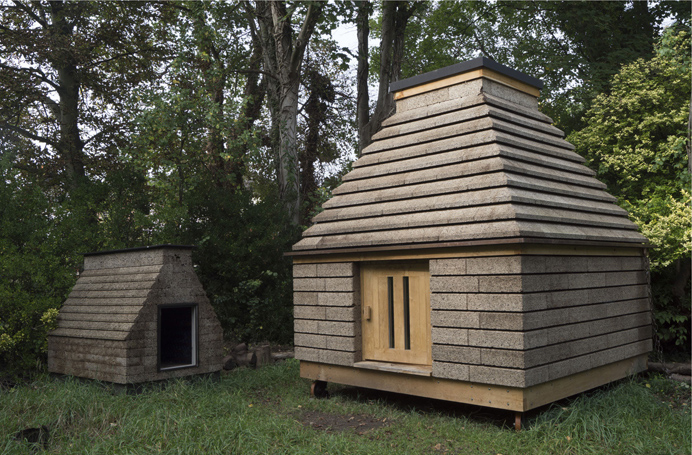Cork Construction Kit
Oliver Wilton, University College London
Matthew Barnett Howland, CSK Architects
Awards 2019 RIBA President's Awards for Research
Category Design & Technical
'Cork Construction Kit' was the winner for the 'Design & Technical' category in the 2019 RIBA President's Awards for Research.

This article reports on research progress to develop a radically simple new form of solid, dry-jointed bio-renewable construction, made of expanded cork blocks and engineered timber. The aim is to develop a viable construction system with outstanding whole life performance using plant-based materials, that can help to sustain biodiverse landscapes, to create buildings with exceptionally low whole life carbon emissions.
This system uses building blocks made of cork forestry waste, that interlock for quick and easy assembly, creating buildings that are low energy to inhabit and simple to disassemble at end of building life for re-use. This system presents the opportunity to investigate an architectural language of cork stereotomy which is new and at the same time familiar, being a progressive reimagining of historic dry-stone construction.
This research is architect-led and multidisciplinary, having been undertaken in three steps by a team of practitioners and academics over five years from 2014 to 2019. Step one is curiosity-driven research, initial hypothesising and making the Cork Casket. Step two involves in-depth design hypotheses, scaled constructional models, extensive prototyping, and testing relating to structure, fire and weathertightness. An innovative robotic cork milling method is developed. The Cork Cabin is fabricated, assembled, and monitored. Lessons are learned, the hypothesis evolves, and the system design is established. Step three is the design, creation and inhabitation of the Cork House, the first house of its type, permanent, replicable and designed to fully meet local building codes. Its corbelled profile knits into its site, with sheltering interiors offering a rich sensory living environment. Post occupancy evaluation commences.
The research to date confirms the potential for such simple new forms of off-site plant-based construction to help address some intractable construction industry challenges. It has implications relating to whole life environmental sustainability performance and to construction complexity, quality and productivity.






